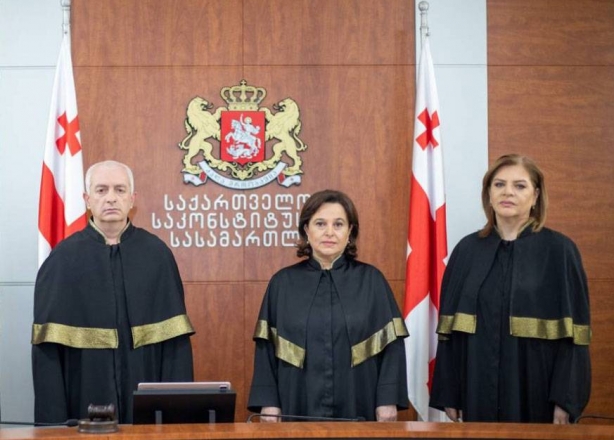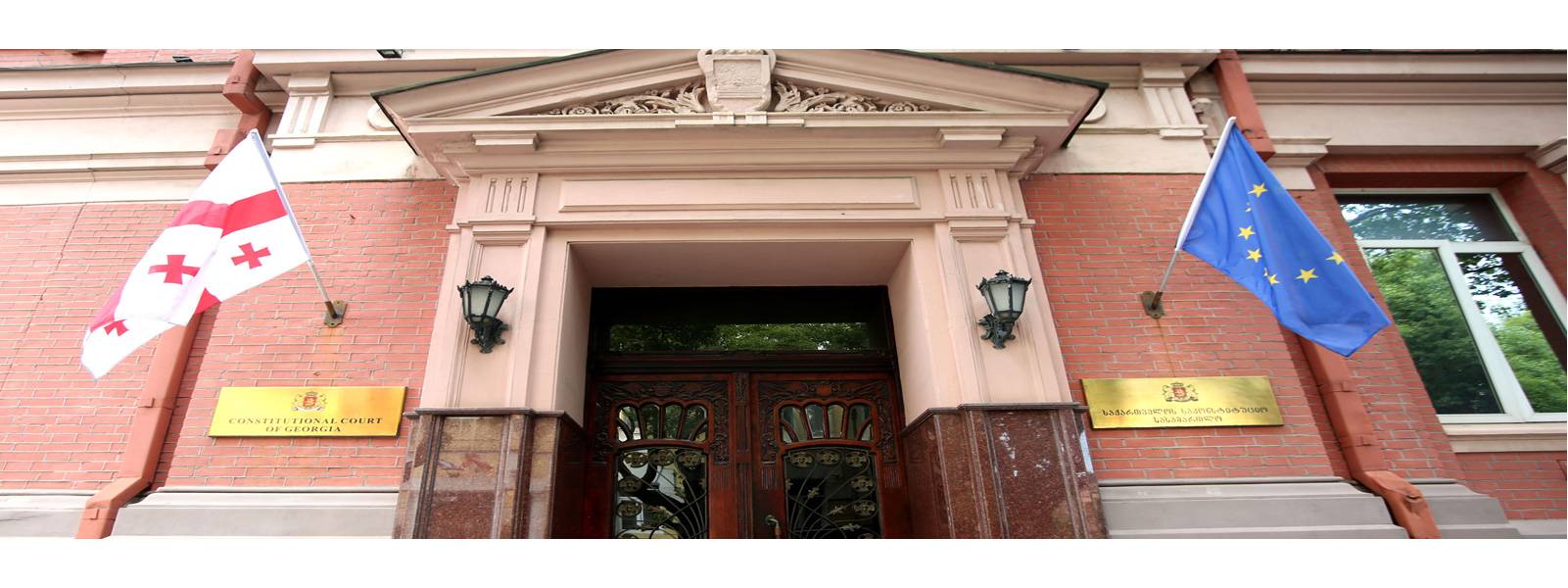News
The Constitutional Court of Georgia does Not Uphold the Constitutional Claim № 1592
On September 19, 2025, the Second Board of the Constitutional Court of Georgia did not uphold the constitutional claim №1592 ("Ibrahim Mukhtarov v. the Parliament of Georgia").
The subject of the dispute was the constitutionality of Article 29, Paragraph 7 of the Law of Georgia on International Protection with respect to Article 11, Paragraph 1 and Article 18, Paragraph 1 of the Constitution of Georgia. According to the disputed provision, an application submitted for international protection by a person subject to extradition shall be reviewed by the Ministry of Internal Affairs no later than one month after the receipt of the extradition documentation.
The claimant argued that he had been refused international protection. He maintained that the one-month period established by the disputed provision violated his right to a fair trial, since, under conditions of detention, it was impossible to obtain relevant evidence from the country of origin within such a short timeframe. He further contended that the period for reviewing his application was discriminatory compared to that applied to other asylum seekers, for whose applications the legislation provides a six-month review period (with the possibility of extension on appropriate grounds).
According to the defendant, the representative of the Parliament of Georgia, persons subject to extradition and other asylum seekers were not essentially comparable. However, even if differential treatment was present, it served a legitimate aim in ensuring the effective implementation of the extradition procedure. Representatives of state agencies participating in the case noted that, prior to the legislative reform of the international protection procedure, the nine-month extradition detention period often expired due to the length of asylum proceedings. This forced the State to release persons wanted for committing grave crimes, many of whom evaded justice. Accordingly, the one-month period ensured that the asylum procedure could be completed within the extradition detention period. They also emphasized that the one-month and six-month procedures for reviewing applications for international protection were substantively identical, as the legislation did not attach decisive weight to documentary evidence but rather to the reliability and persuasiveness of the information submitted by an applicant.
The Constitutional Court of Georgia agreed the positions of the defendant and the state agencies regarding to the right to a fair trial. The Court determined that the one-month period did not restrict the claimant’s procedural guarantees, as the administrative body remained obliged to conduct all procedures prescribed by law, including profiling and holding of an in-depth interview. The Court stressed that the international protection procedure is guided by the principle of “resolving suspicion in applicant’s favor”, which means that the decisive importance lies not in the documentary evidence but in the consistency, reliability, and credibility of the information provided by the asylum seeker.
With respect to the right to equality, the Court held that asylum seekers subject to extradition and other asylum seekers were essentially comparable, as both shared the same interest in having their applications examined objectively and within a reasonable time. However, the Court found that the difference in treatment was based on objective and reasonable grounds. It agreed with the respondent’s argument that the efficiency of the extradition process constituted a legitimate aim. The Court observed that the practice existing prior to the disputed provision, when asylum procedures exceeded the nine-month detention period, led to the release of wanted persons and hindered the State’s compliance with its international obligations. Consequently, the Court concluded that the one-month period was a rational means of achieving the stated legitimate aim.
In view of the above, the Constitutional Court held that the disputed provision does not contradict Paragraph 1 of Article 11 and Paragraph 1 of Article 18 of the Constitution of Georgia and therefore did not uphold the constitutional claim.


